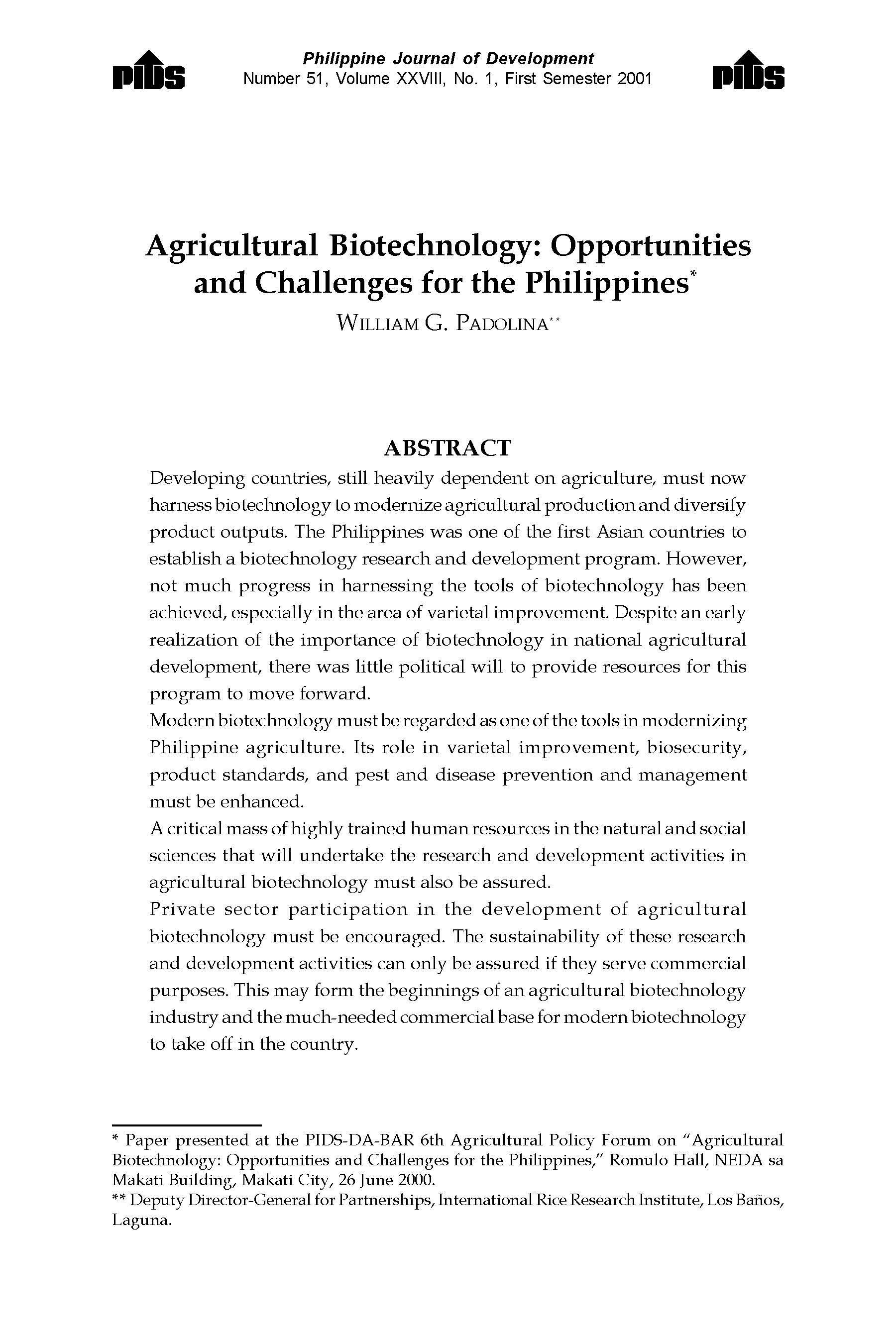Abstract
This issue explores key economic and policy challenges in the Philippines, ranging from biotechnology’s role in agriculture to trade liberalization, economic integration, and financial stability. One study examines the country’s biotechnology efforts, highlighting its early initiatives but noting limited progress due to insufficient political support. It underscores the need for investment in research, human resources, and private sector participation to enhance varietal improvement, biosecurity, and pest management. Another paper evaluates the impact of the Retail Trade Liberalization Act of 2000, assessing competition in the retail food industry. While concerns exist about market power among large retailers and manufacturers, empirical evidence remains inconclusive, necessitating further analysis. The country’s evolving trade policies and economic integration strategies are also explored. A study reviews the Philippines’ transition from protectionist policies to participation in global trade agreements, identifying areas for reform to sustain competitiveness in regional and international markets. Other studies investigate financial and legal frameworks, including the implications of currency substitution and dollarization, as well as the empowerment of the informal sector through existing laws.
Articles
SHARE
